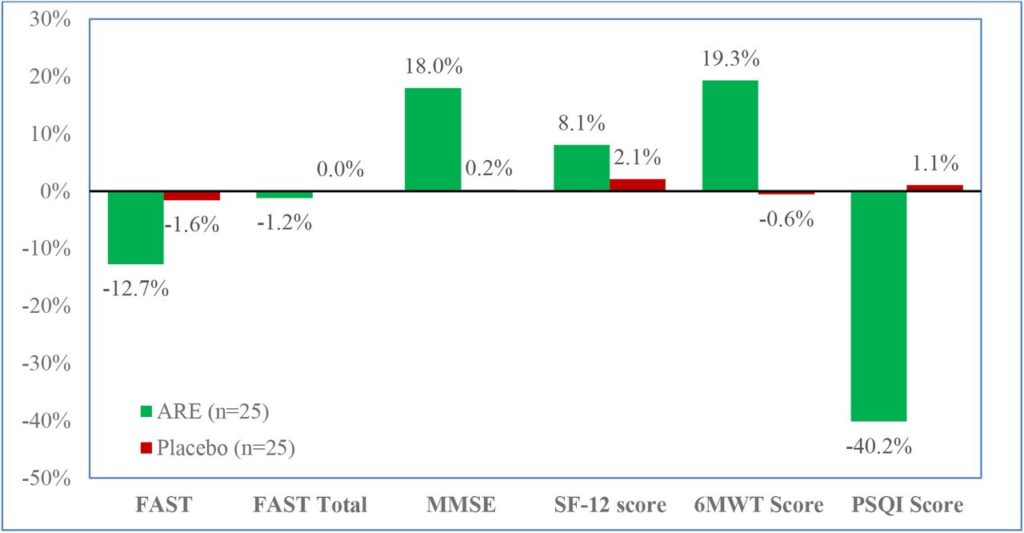Ashwagandha Root Extract Improves Cognition, Physical Performance, and Sleep
Supplementing with 600 mg of ashwagandha for eight weeks improves signs of aging in older adults.
Highlights:
- Ashwagandha has been shown to reduce frailty and improves cognition, quality of life, walking speed, and sleep.
- Previous studies also suggest that ashwagandha may slow muscle and brain aging.
Ashwagandha (Withania Somnifera) is an Ayurvedic medicine, used in India for thousands of years as a general tonic. Studies have shown that supplementing with ashwagandha relieves perceived stress and the stress hormone cortisol. For this reason, ashwagandha is called an adaptogen — a compound that helps the body adapt to and resist stress.
With its adaptogen-related properties in mind, researchers in India sought to determine if ashwagandha could counteract frailty in a new preprint study. Frailty is a clinically recognized syndrome that makes individuals more vulnerable to falls, disability, hospitalization, and death. It is characterized by unintentional weight loss, low energy, muscle weakness, slowness, and low physical activity.
Ashwagandha Improves Signs of Aging
Not only did the researchers find that ashwagandha supplementation reduces frailty, they also showed that it improves cognition, quality of life, sleep, and walking speed in older adults. Frailty was assessed with a series of questions, including “Do you have two or more diseases and/or chronic disorders?” and, “Over the past 6 months has your physical health declined?”
Cognitive function was measured using the mini-mental state exam (MMSE), a clinical tool that provides assessments of memory, attention, and language skills. The other two questionnaires, the 12-item short form survey (SF-12) and the Pittsburgh sleep quality index (PSQI), were used to assess life quality and sleep, respectively.
To assess walking speed, the researchers employed the six-minute walking test. For this test, the participants walked as far as they could in six minutes. The results showed that, for the participants who supplemented with 600 mg of ashwagandha for eight weeks, the distance walked in six minutes was increased by 19.3%.

Ashwagandha as an Anti-Aging Agent
Aging is a degenerative process, whereby our organs gradually deteriorate and become dysfunctional. This includes muscle deterioration, a gradual decrease in muscle mass and strength that occurs with age. Muscle deterioration can reach the point of sarcopenia — age-related muscle weakness and atrophy. However, studies have shown that supplementing with ashwagandha can improve muscle strength and mass. Moreover, researchers have said,
“Ashwagandha extract supplementation was safe and effective in enhancing physical performance and strengthening muscle mass and could be a potential candidate for treating sarcopenia.”
Furthermore, a study of middle-aged and older overweight males showed that ashwagandha supplementation increases testosterone levels, which could help explain how ashwagandha improves muscle growth. Ashwagandha also can counteract inflammation and oxidative stress, which are underlying drivers of aging that contribute to muscle loss. By reducing inflammation and oxidative stress, ashwagandha may also counteract brain deterioration.
Ashwagandha has been shown to improve mental alertness, quality of life, and sleep in a population of elderly adults, which may be related to improving brain function. Another study showed that ashwagandha improved memory and focus, psychological well-being, sleep, and reduced stress levels in young and middle-aged adults. Moreover, ashwagandha enhances general memory in people with mild cognitive impairment, suggesting it counteracts brain aging.
Together, the research suggests that ashwagandha can contribute to the slowing of muscle and brain aging, making it a potential anti-aging agent. KSM-66 ashwagandha is said to consist of pure root extract and may be the most potent. Regarding dosing, 600 mg may be enough to reap the anti-aging benefits of ashwagandha. However, one should consult with a healthcare provider before trying any new supplements.

